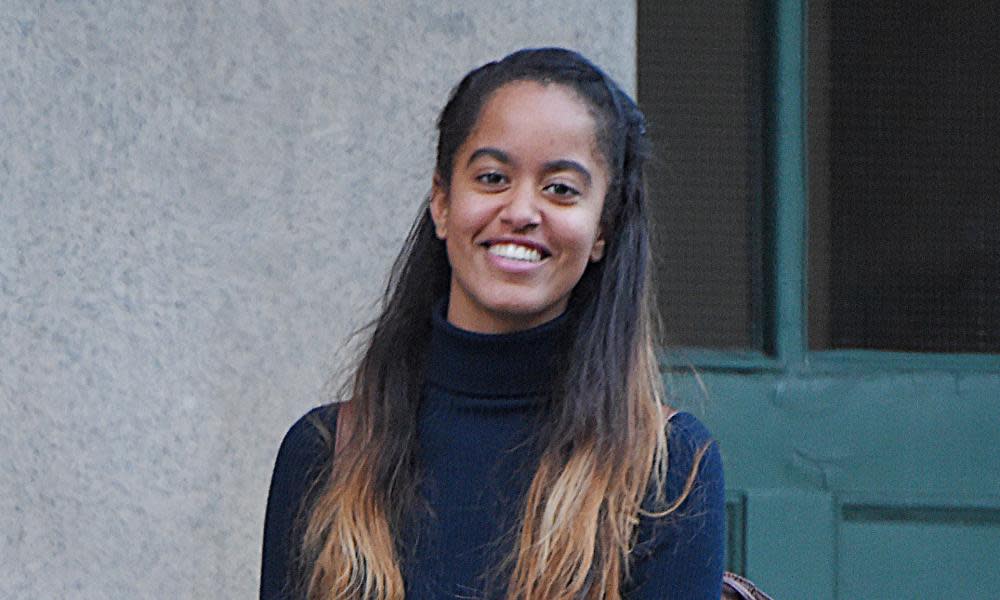Malia Obama’s rosé-shaming is the latest in drinking double standards

Malia Obama, a 20-year-old Harvard student who happens to be the daughter of a former US president, recently enjoyed a glass of poolside rosé during a weekend with friends in Miami. We know about this unremarkable incident because the Daily Mail saw fit to publish a salacious article about “underage Malia” drinking, consisting of 23 creepy photos of her in a swimsuit. They also threw in a video. The UK may no longer rule the world, but its tabloids remain global leaders in shamelessness.
News that an Obama was enjoying herself predictably propelled a number of Trump supporters into fits of self-righteous outrage. Andrew Wilkow, the host of a conservative radio show, tweeted: “Living like the 1%? Drinking underage? Let’s see the #democrats and media scream about ‘privilege’ here.”
All right, Mr Wilkow, challenge accepted. I’m going to scream about “privilege”. More specifically, I’m going to scream about “drinking privilege” and how young women are judged more harshly than men when it comes to alcohol.
Obama getting rosé-shamed by the Mail is not an isolated incident; the media loves moralising about women and booze. A 2016 study by researchers at Glasgow University and Glasgow Caledonian University, for example, found women’s binge drinking is given more media coverage despite the fact that men are more likely to drink to excess. The study, which analysed 308 articles published over two years in seven UK national newspapers, noted that portrayals of women drinking were also unfairly stigmatising. Chris Patterson, from the public health sciences unit at the University of Glasgow, explained: “Media coverage of women’s binge drinking isn’t just about health or public disorder; it also performs a moralising, paternalistic role, reflecting broader social expectations about women’s public behaviour.”
While that study was about binge drinking, there is apparently no safe amount a woman can drink if she wants to avoid being judged. In 2016, for example, the US Centers for Disease Control and Prevention (CDC) advised all women of childbearing age who weren’t using birth control to completely avoid alcohol, in case they got pregnant. This condescending guidance was based on a CDC estimate that “approximately 3.3 million US women aged 15-44 years … were at risk for an alcohol-exposed pregnancy during 2011-2013”. A study published last month in the journal Women’s Health Issues argues this was a massive overestimate, and cautioned that exaggerating the problem “can contribute to moral panic about alcohol use during pregnancy”.
There is also, of course, no safe amount a woman can drink if she wants to avoid getting blamed for being raped. If you are a man, being drunk makes you somehow less culpable in society’s eyes for sexually assaulting someone; it was the booze that did it, not you! If you are a woman, however, drinking means you were irresponsible; you should have been more careful! Indeed, we seem to expend more energy telling women not to get drunk than we do telling men not to rape.
One of the most glaring examples of our double standards around drinking is sitting on the US supreme court. In his testimony to the Senate judiciary committee last year, Brett Kavanaugh talked at length about how much drinking he had done at high school. “I liked beer,” Kavanaugh said. “I still like beer.” It’s very hard to imagine a woman telling a room full of senators how much she loved boozing and then getting rewarded with one of the most powerful jobs in the world. Kavanaugh got a pass, however, because boys will be boys, after all. And girls will be publicly shamed.

 Yahoo News
Yahoo News 
